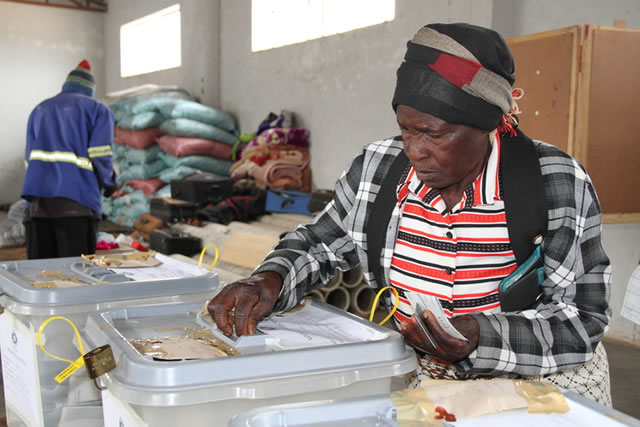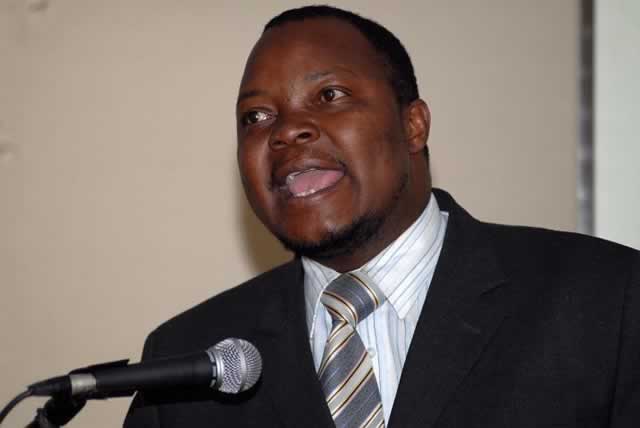July 31 saved our hard-won Independence

Tichaona Zindoga My Turn
After about half a year in South Africa, I came back to Zimbabwe on the eve of the July 31 elections last year.
The timing was deliberate.The elections were about the most important milestone in the recent history of the country, signalling the end of the inclusive Government; that deal between Zanu-PF and the two MDC formations which many commentators wanted to call a marriage of convenience, hence dysfunctional.
For those who may not know, the inclusive Government came about through negotiations among the three major political parties in Zimbabwe following elections in March 2008 which produced a hung Parliament.
The controversial elections had also produced no clear winner in the first round of presidential elections as neither incumbent President Mugabe nor challenger Morgan Tsvangirai amassed the requisite 50-plus-one percent votes to be declared outright winner.
President Mugabe got 43 percent while Tsvangirai captured 47, necessitating a run off on June 27, from which Tsvangirai suddenly and illegally tried to pull out.
President Mugabe won the poll amid confusion and some consternation.
The political, social and economic situation was untenable as the country teetered on the brink.
The times were becoming dangerous and the country was nearly imploding into civil strife.
It was then that the country’s political parties began talks for a possible “unity” government to save Zimbabwe from plunging deeper into the abyss.
(Of course inter-party dialogue had begun as early as 2007 while the heightened crisis, especially the worsening economic situation, served as bargaining chips for the opposition on whose side were western imposed sanctions.)
The protracted talks began sometime in July and culminated in the signing of the so-called Global Political Agreement on September 15, 2008 thanks to the facilitation of former South African President Thabo Mbeki.
The inclusive Government was inaugurated in February 2009, again after much bickering and haggling over posts and other technicalities.
But it did take off, though, and was responsible for the stabilisation of the economy and the cooling down of political temperatures.
The leaders worked relatively well together and built a modicum of trust which even saw the principals enjoying tea and biscuits together on Mondays.
We are told Tsvangirai, who was paranoid at the beginning, ended up voluntarily making tea for himself and President Mugabe during their discussions.
Yet the arrangement was bound to be at the mercy of internal contradictions: you do not put a revolutionary party and a western funded reactionary party together and expect eternal harmony or even babies.
The fights were bound to subsist for the duration of the arrangement as they did.
There were accusations and counter-accusations; programmes were stalled and the left hand of Government did not know what the right hand was doing.
There was perennial talk of “outstanding issues” in the GPA, some of which were never resolved until July 31.
Even the election date itself was a matter of contention among the parties.
July 31, when the date was finally set, would hopefully resolve matters once and for all.
Like everyone else across the globe, I keenly followed events in Zimbabwe in the run up to election day and coming back right on the eve of elections, I wondered which course the country would take.
I prayed.
I wanted to witness the elections and have something to tell my children and the children of my children.
Zimbabwe stood on an edge: it would either go the revolutionary way of Zanu-PF or the puppet way of the MDC-T, the main western sponsored opposition.
This time around the country was quiet, unusually quiet almost like the moment just before a nasty storm.
Then it happened.
The election came and voting took place peacefully across the country and by late night on July 31 information about how the parties were faring began to trickle in.
We held our breaths.
It was like a Judgment Night.
Zanu-PF and President Mugabe won resoundingly and MDC-T and Morgan Tsvangirai did not know what hit them.
In the days leading to the poll, it had become clear that Tsvangirai, because of his carnal fallibilities and kernel-less politics, was going to lose but not many people, even some in Zanu-PF, expected him to lose so spectacularly.
Some analysts say Zanu-PF had a superior message — and Zanu-PF capitalised on that PR disaster in which the top brass of the MDC-T were pictured reading the Zanu-PF manifesto to devastating effect.
It was the biggest campaign poster I saw when I got into Harare.
There was no flavour in MDC-T’s JUICE, (what did that stand for, by the way?) and only a couple of weeks ago MDC-T secretary general Tendai Biti confirmed that Zanu-PF had won on the simplicity and cogency of its “bhora mugedhi/ibhola egedini message”.
The tables were turned.
Zanu-PF, which had been on the ropes a five short years earlier, had rebounded.
And thanks to the party, it saved our Independence.
One can imagine what it would have been had the MDC-T, fronted by a man who ran into his mother’s skirts at the sound of the liberation war gun, won on July 31.
The party is sponsored and controlled by the very same people our gallant soldiers fought yesterday.
The party does not respect days that honour Independence and Heroes and has in the past had the temerity to denigrate some heroes laid at the National Heroes Acre.
The history and the heroism of the revolution and the continuum of liberation is anathema to the MDC.
What would have happened to our history as a people that fought colonial settlers and went on to dismantle colonialism by repossessing land that was stolen from us were thrown out?
The consequences would be too ghastly to contemplate.
This makes July 31, 2013 one of the most important days in the history of this country.
At the rate at which the MDC-T is disintegrating and weakening following the rout in the last elections, it is to be expected, and welcomed, that our Independence and sovereignty will subsist for a couple years more without the single and extraordinary threat that the western sponsored MDC-T has been.
It is also to be hoped that Zanu-PF, forever in the uncanny habit to self-destruct, will remain alert to its obligation of being the custodian of this country’s revolutionary consciousness.
We still need our independence and Independence Day.










Comments